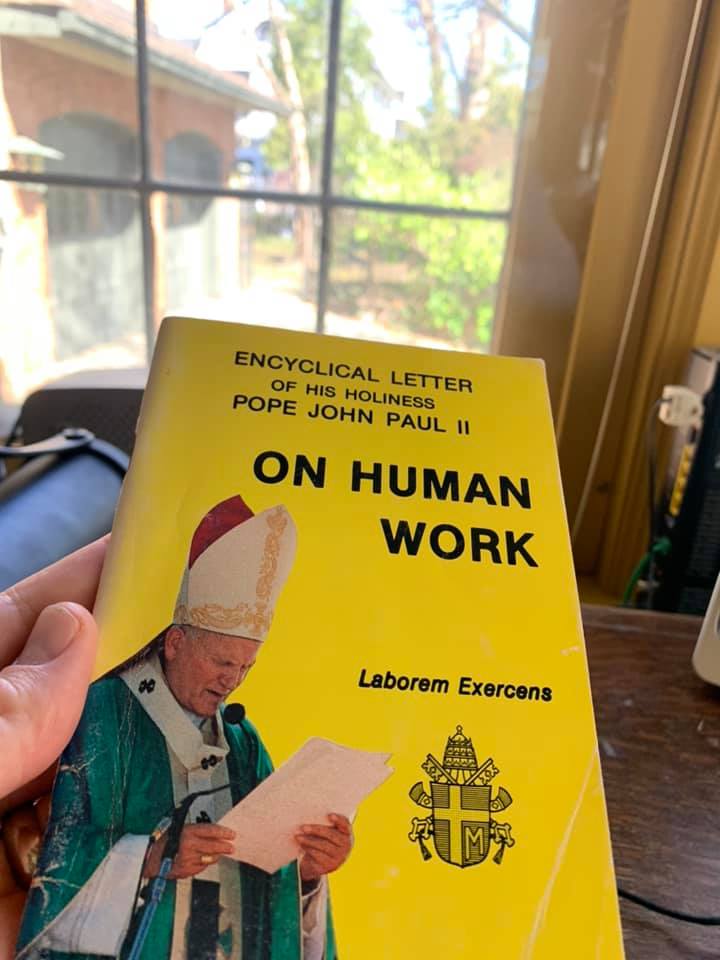 Yesterday (May 1), we observed the Memorial of St. Joseph the Worker. The history of this feast is rooted in the ideology of work propagated by Communists and Pope Pius XII wanted to remind Catholics that theory of work of the Communists contradicted what the Church (and by extension St. Benedict) taught about work so he instituted the feast of Saint Joseph the Worker. That was 1955.
Yesterday (May 1), we observed the Memorial of St. Joseph the Worker. The history of this feast is rooted in the ideology of work propagated by Communists and Pope Pius XII wanted to remind Catholics that theory of work of the Communists contradicted what the Church (and by extension St. Benedict) taught about work so he instituted the feast of Saint Joseph the Worker. That was 1955.
Pius XII considered St. Joseph to be the model of work: “The spirit flows to you and to all men from the heart of the God-man, Savior of the world, but certainly, no worker was ever more completely and profoundly penetrated by it than the foster father of Jesus, who lived with Him in closest intimacy and community of family life and work.”
In his encyclical Laborem Exercens, Pope St. John Paul II wrote: “…the Church considers it her task always to call attention to the dignity and rights of those who work, to condemn situations in which that dignity and those rights are violated, and to help to guide [social] changes so as to ensure authentic progress by man and society.”
The coronavirus has many of us on a work hiatus it so it seems like a good time to break this great encyclical out and read or reread it. Do you consider your professional work to have meaning for your life in the family, does your professional life have dignity and an importance that you can see it as cooperating with the work of God in building up the Kingdom of God? Is there a creative genius that connects with the care of the land as proposed by Genesis 2:15?